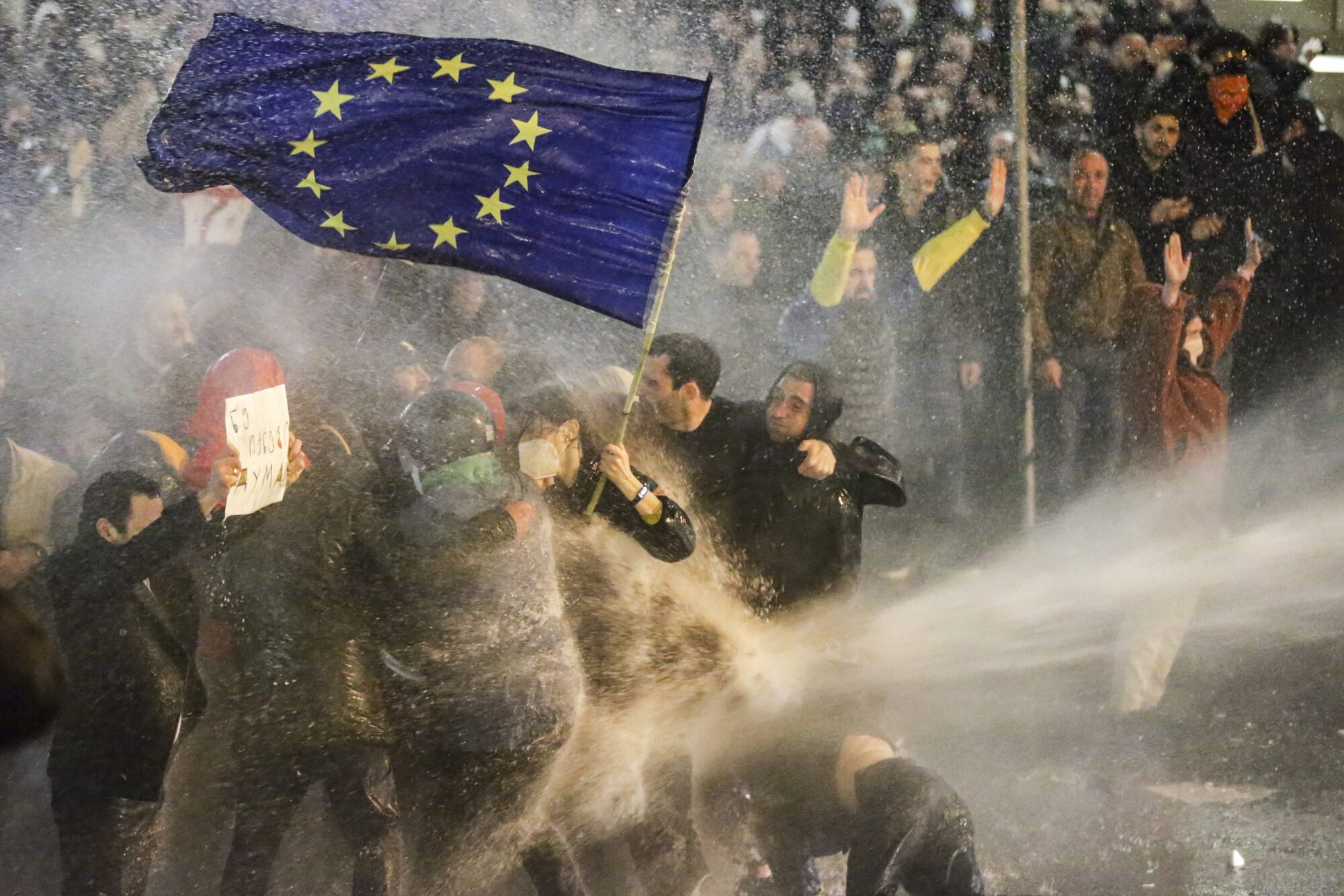
Georgia’s government announced today that it will withdraw its ‘Russia-inspired’ law, after two nights of riots and mass demonstrations from enraged pro-EU demonstrators. This is a big win for the political opposition, and popular Georgian sentiment, in the deeper struggle for this nation’s future—as the Caucasian country sits at the crossroads of Europe and Russia.
The ruling Georgian Dream party explained its decision on Thursday morning, March 9th, citing the “divisions in society” caused by their law. While nominally pro-EU, analysts say that Georgian Dream is really taking a pro-Russia turn.
The law in question would have required NGOs who received more than 20% foreign funding to register as “agents of foreign influence.” However, critics maintain this label has Soviet era connotations—when dissidents were repressed for being ‘enemies of the people’—pointing to similar laws used to quash independent media in Putin’s Russia. This sparked fears that an increasingly authoritarian government would vindictively clamp down on Georgia’s civil society.
Georgian President Salome Zourabichvili, who sided with the protestors, declared outright that the law “did not come out of nowhere, but was dictated by Moscow.” When EU high representative Josep Borrell advised that the bill was “incompatible with EU values and standards” alarm spread that the government was trying to sabotage Georgia’s attempt to join the Union.
The scenes that followed saw thousands turning the streets black, and of riot police sheltering under barrages of fireworks. At one point protesters braved water canons in an attempt to storm the parliament.
#Georgia: Police spraying protesters with firehoses in an attempt to keep protesters out of the parliament building. Protesters in Tbilisi have reportedly attempted to storm the building following backing of new legislation many Georgians view as authoritarian. pic.twitter.com/WzWvP8z6hO
— POPULAR FRONT (@PopularFront_) March 8, 2023
While the EU delegation to Georgia welcomed the “announcement by the ruling party to withdraw draft legislation on ‘foreign influence,’” for many on the street the struggle continues. Speaking to The Guardian, one protester said “I will go [to] the rally tonight again, we cannot stop now … This is our big chance to end all ties with Russia. We want to be with the EU.”
Anti-Russian and pro-EU feeling is intense in Georgia, which was once part of the Soviet Union. According to polls over 80% of Georgians support joining Europe. While the country is officially pursuing an accession bid, many fear that the ruling party wants to sabotage it.
Only last month the Georgian Dream-led government was condemned by the European Parliament for its brutal imprisonment of its pro-EU ex-President, Mikhail Saakashvili. So, while western aspirations have won for today, the fight is far from over.
